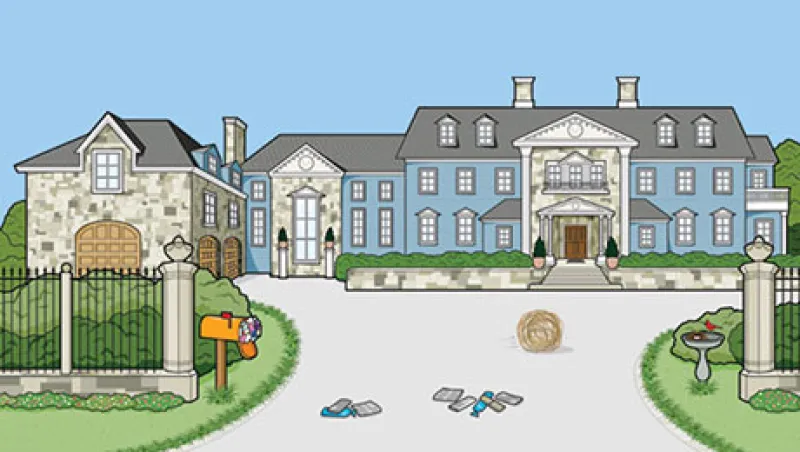With their white siding, black shutters, and pillared porches, the colonial homes of Greenwich, Connecticut, evoke genteel New England and all the Yankee respectability that implies. But the town’s proximity to Manhattan, less than an hour away by commuter rail or town car, has made it an extension of Gotham, where fortunes are made — and sometimes lost.
As such, Greenwich has long been a town of arrivistes; almost half of its current home buyers hail from elsewhere. Every few decades wealthy newcomers refashion this tony suburb on Long Island Sound in the image of the latest moneyed class, their status clinched by a Greenwich address, be they the robber barons of the Gilded Age, the corporate CEOs of the 1960s, or, more recently, hedge fund moguls like Paul Tudor Jones II, Steve Cohen, and Ray Dalio.
No doubt Knighthead Capital Management co-founder Ara Cohen thought he, too, had arrived when, just a few short years after starting his hedge fund in 2008, he bought what has become the fifth-most-expensive house on the market in Greenwich today. The 16,863-square-foot, four-floor Georgian mansion, hidden on five manicured acres behind an iron gate on Clapboard Ridge Road, conjures the European aristocracy (or, as Sotheby’s International Realty puts it, “architectural details and tasteful refinements suggest pre-war substance and quality”). Yet Cohen’s imposing stone mansion isn’t old: Finished in 2011 with the requisite hedge fund accoutrements, it houses a home theater and a wine cellar, two swimming pools — one of them indoor, next to a sauna — a billiards room, and an elevator. A life-size chess set adorns the grounds.
But Ara Cohen’s gilded life apparently was short-lived. Almost as soon as Cohen moved in, his high-flying, New York–based hedge fund hit a bout of turbulence, ending 2011 with a 3 percent loss. Less than four years after completing his dream house, Cohen put the mansion on the market, listing it at $35 million in September 2015, the same year Knighthead ended up losing 10 percent. Last August, Cohen reduced the asking price to $29.5 million, for a house assessed at $10.9 million in 2014. Although Cohen’s distressed fund has begun to stanch the bleeding — it was up 9.5 percent in 2016 and continues to post gains as of March — his house is still for sale. (Cohen did not return a call for comment.)
This is an excerpt. To read the entire piece, click here.






